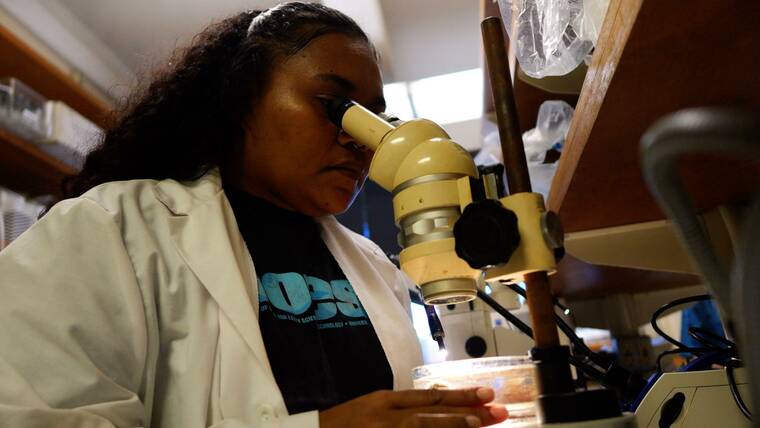LIHU‘E — Six Pacific Island universities, including the University of Hawai‘i at Manoa, received this week a $5 million grant aiming to support Native Hawaiians and Pacific Islanders seeking degrees in marine and environmental sciences.
The grant, awarded from the U.S. National Science Foundation, is set to benefit local applicants to six schools — UH Manoa, Palau Community College, American Samoa Community College, the College of Micronesia-FSM, the College of the Marshall Islands and Northern Marianas College.
“The project addresses a primary cause of low enrollment of island-based students in STEM — financial challenges and the associated need to work while also attending classes,” said Bob Richmond, director of the UH Manoa Kewalo Marine Laboratory (KML) in the School of Ocean and Earth Science and Technology.
“Removing this barrier is a way to support the recruitment and retention of talented students with bright minds, cultural connections and passion into these fields who might otherwise not have access to higher education opportunities.”
Native Hawaiian and Pacific Islanders are among the most underrepresented demographics in STEM disciplines.
Richmond explains that in his experience, many of his students with Pacific Island backgrounds have expressed a multitude of hardships that made success difficult to obtain, from financial troubles to limited familial experience in higher education and a lack of Native Hawaiian and Pacific Islander figures in STEM to look up to and follow.
“There’s no question — some of the best and brightest students I’ve ever had have been Native Hawaiian and Pacific Islander students,” Richmond said. “I would match them against any student from Harvard, Yale, Berkeley, any day of the week. But they don’t come in necessarily with the confidence, the experience and the framework that enables them to feel comfortable.”
Recognizing that many students targeted by the program are the first in their families to reach college, a portion of the grant’s funding has gone toward researching best practices for guiding these students through an unfamiliar institution. Resources will be made available to assist in navigating challenging degree programs, understanding STEM career paths, developing key skills for academic success and addressing barriers to achievement.
Richmond hopes these opportunities will not only make it easier for Native Hawaiian and Pacific Islander students to find success in college and beyond, but that their successes can allow future generations to better envision themselves taking on these positions.
“Success begets success, and what we’re trying to do is build into the program all of the opportunities to help students succeed, to give them the kind of support that they need,” he said. “Not only academically, but culturally and in terms of things that matter to them, to make sure that they really can focus in on their studies and success and not be either self-defeating or let other people tell them what they can or can’t do.”
The grant program isn’t just set to benefit the students, though — it’s set to benefit marine and environmental scientific fields as well. Richmond explained how the sociocultural understanding that locals bring can create responses more in tune with their community.
“When you try to look at solving problems, they need to be things that are not only effective and economically feasible, but they need to be culturally acceptable,” he said. “And having someone from, say, Idaho telling a local Hawaiian fisherman what he should or shouldn’t be doing, there’s kind of a major disconnect.”
Cultural considerations aren’t the only issue with relying on outsiders for these positions. Many experts from the mainland who fill these roles often return to their families on the mainland, compounding the Pacific Islands’ notorious “brain drain.”
“They come out, they get experienced, they learn, but then they leave and go back,” Richmond said. “And so all of that time and effort and training that went into being able to give them additional skills is lost.”
Through this grant program, Richmond believes several of these crucial issues for Pacific Island communities can be solved — providing on-island jobs for locals, bridging the gap between scientific and native communities and forging a future for Native Hawaiians and Pacific Islanders in STEM fields.
UH Manoa is hoping to begin awarding scholarships in the spring semester, Richmond said, with an estimated total of 200 to 250 students across the schools receiving, at minimum, two-year degrees.
“We’re absolutely thrilled to have gotten this opportunity,” he said. “It’s taken a while, and several submissions until we got it, but people realize that the future of the Pacific Islands, the future of Hawai‘i, the future of the planet depends on having a well-educated STEM workforce. And there’s no better group in the world to pull into these opportunities than the very students and institutions that we’re targeting with this phenomenal grant.”
•••
Jackson Healy, reporter, can be reached at 808-647-4966 or jhealy@thegardenisland.com.


